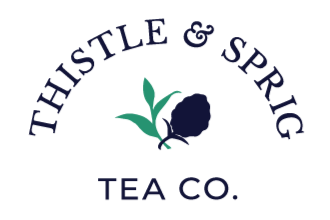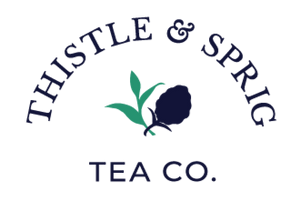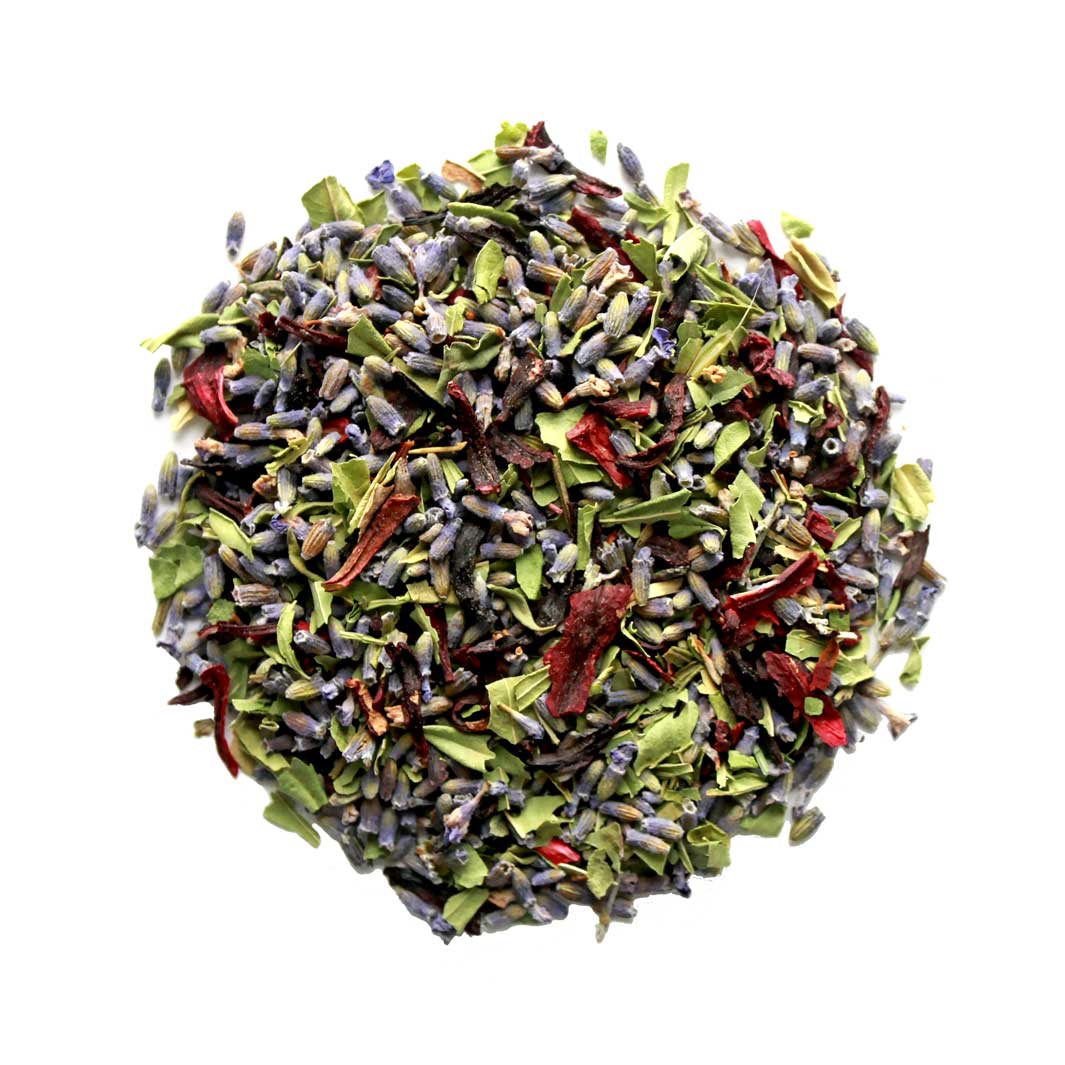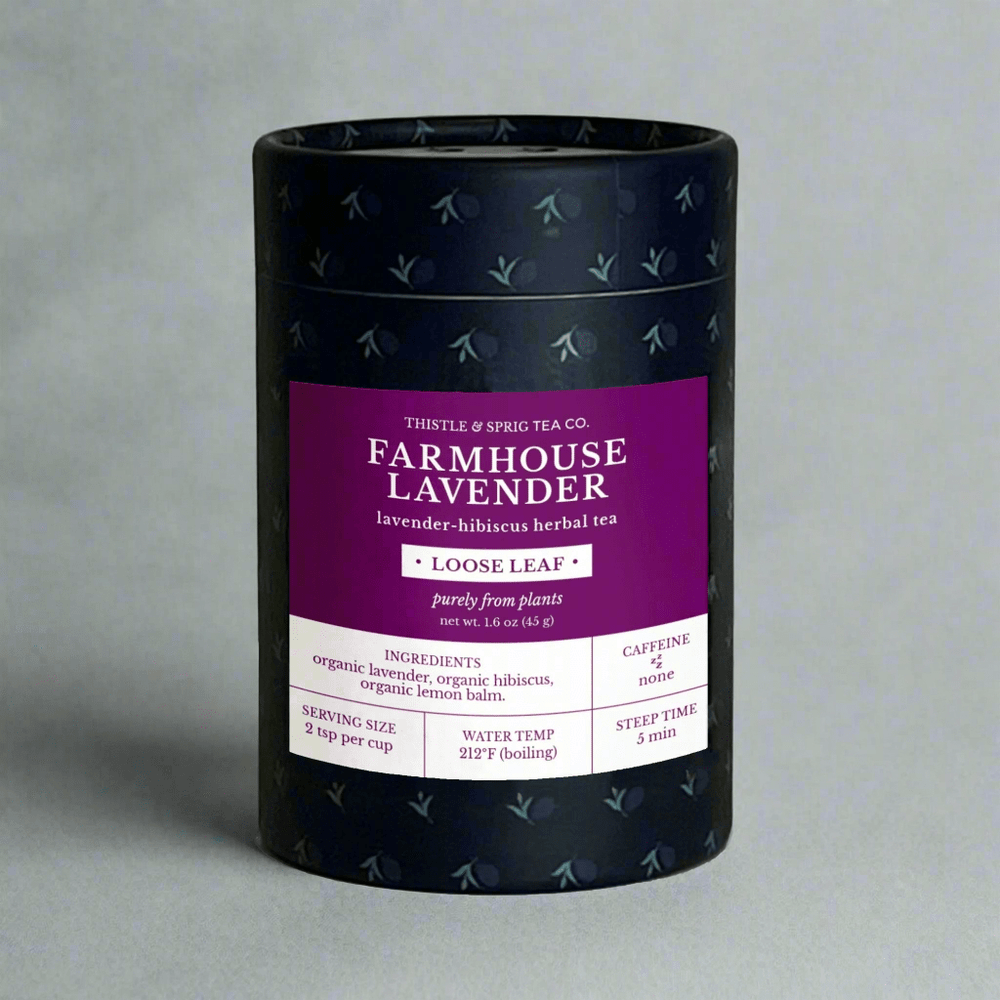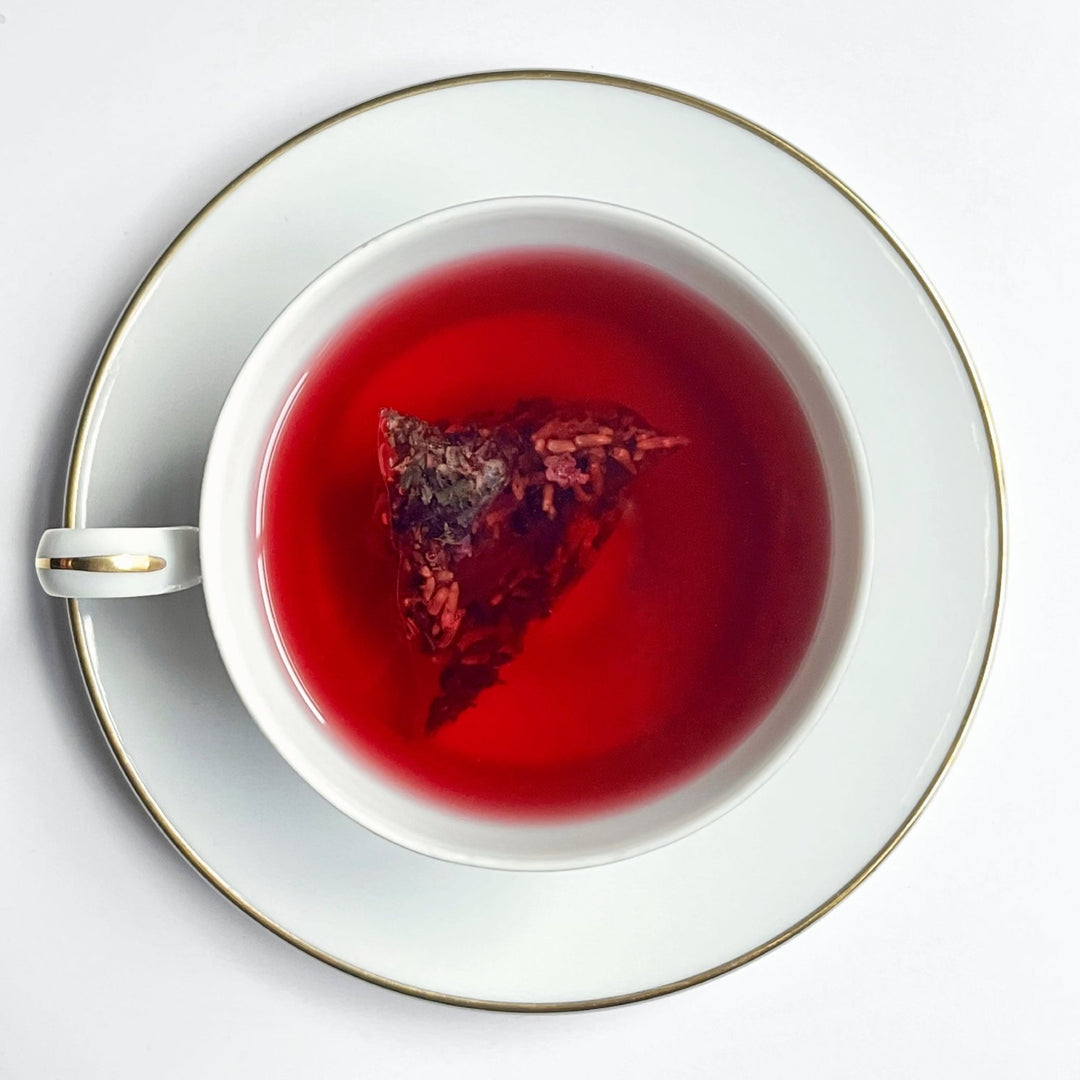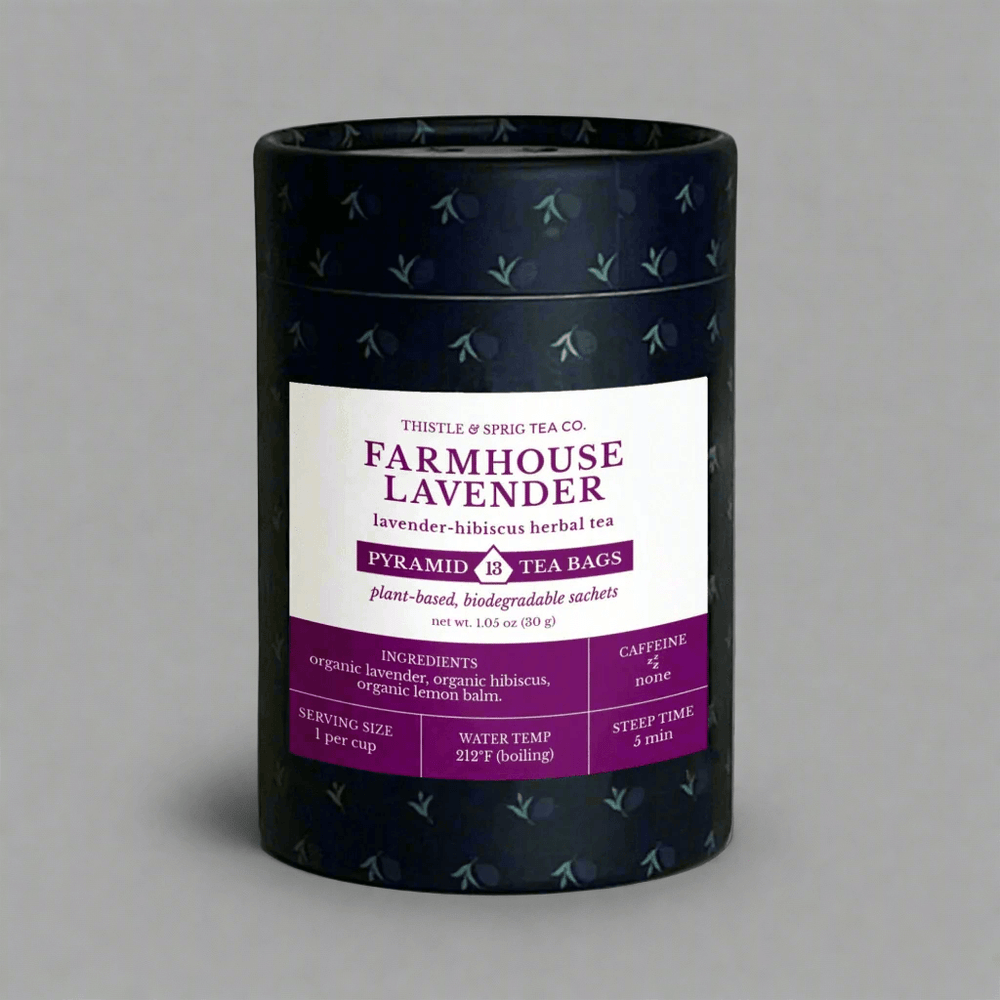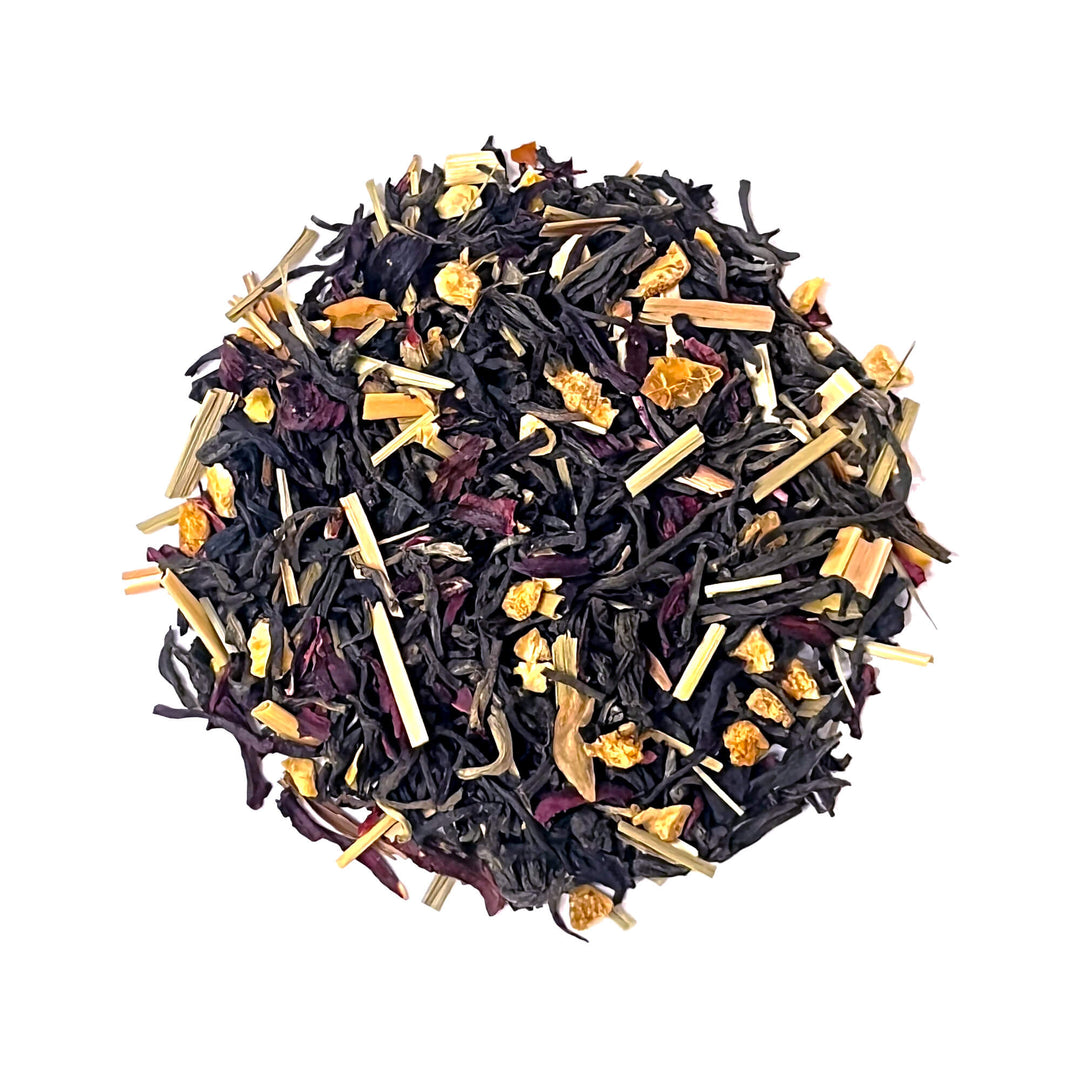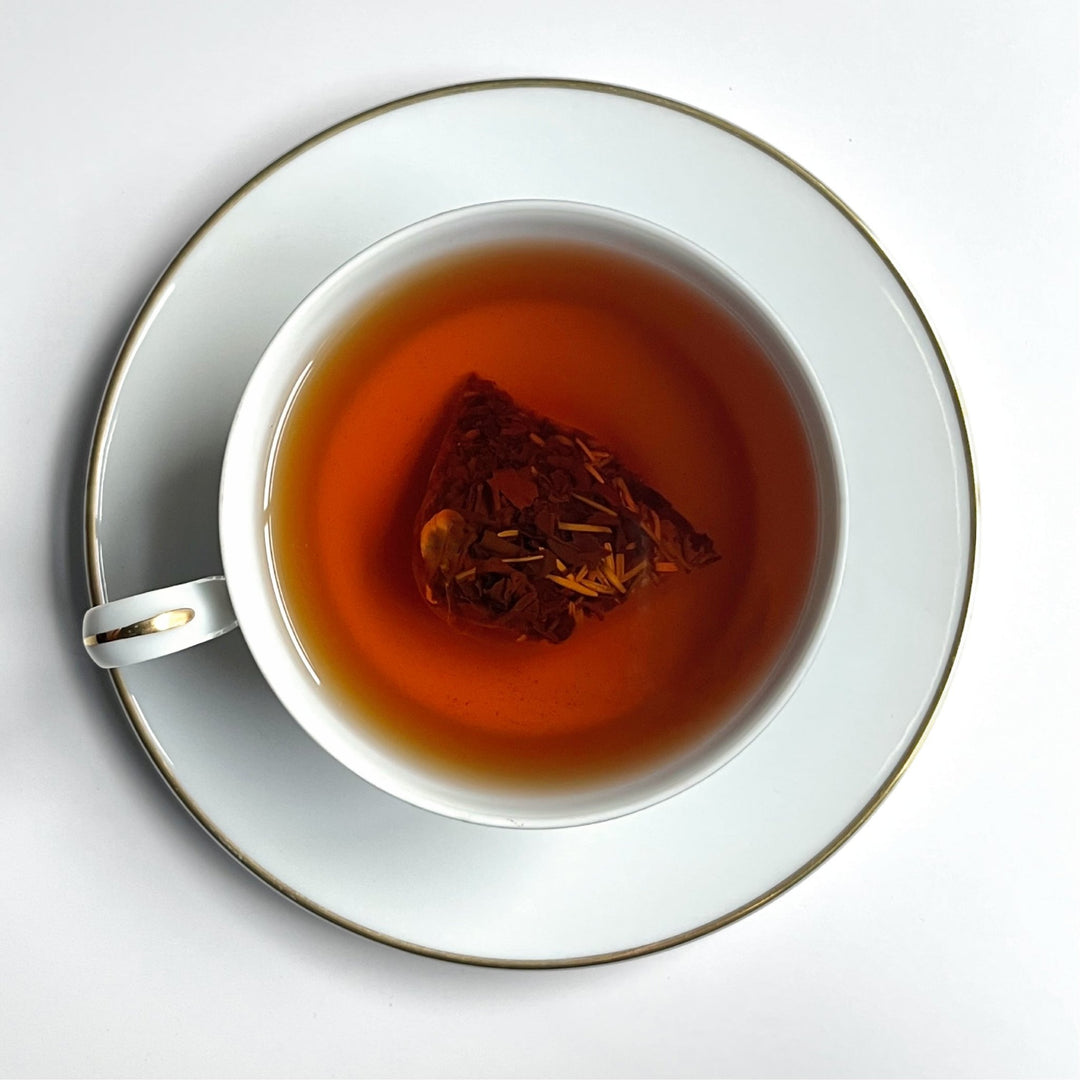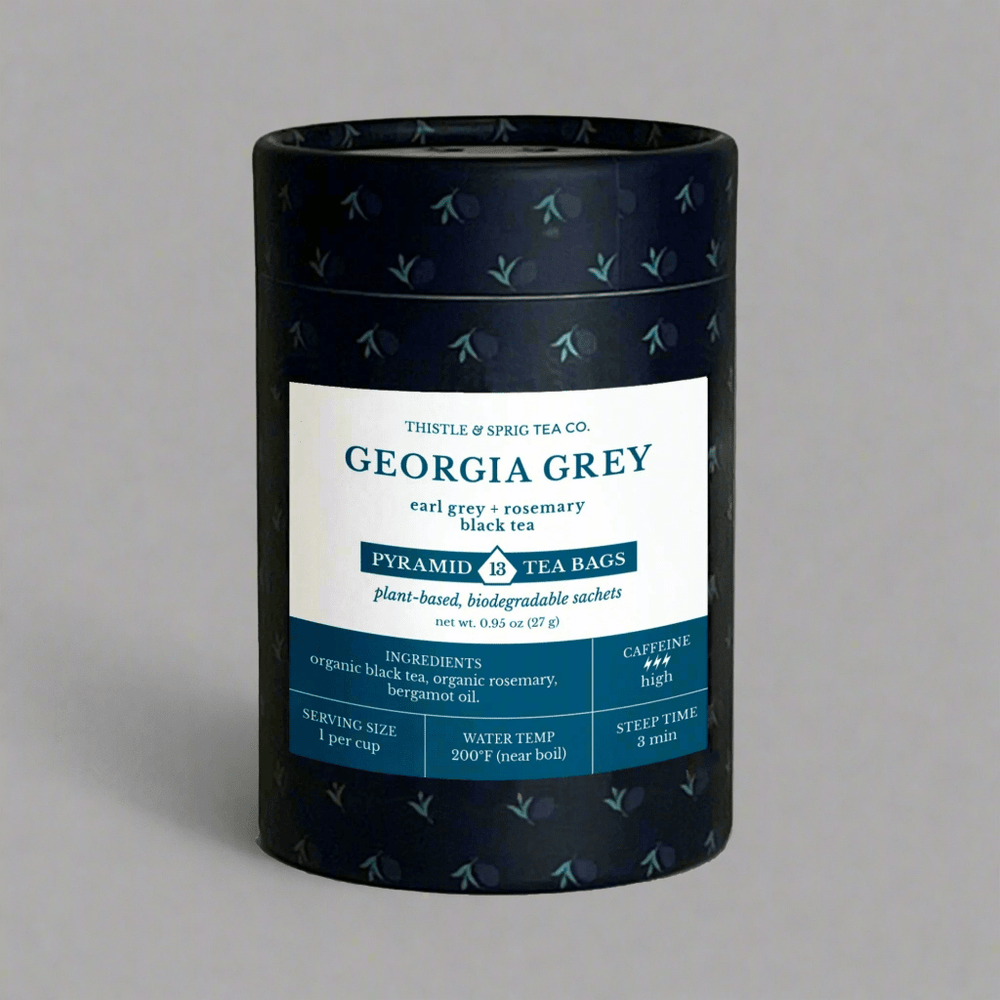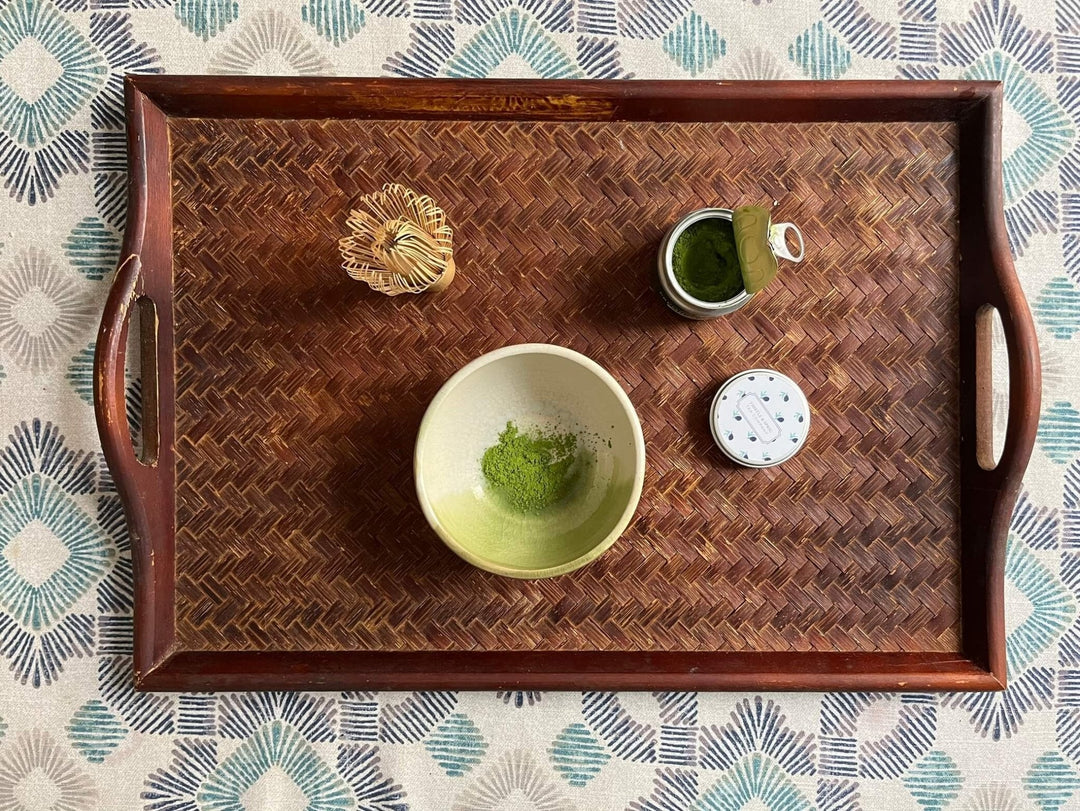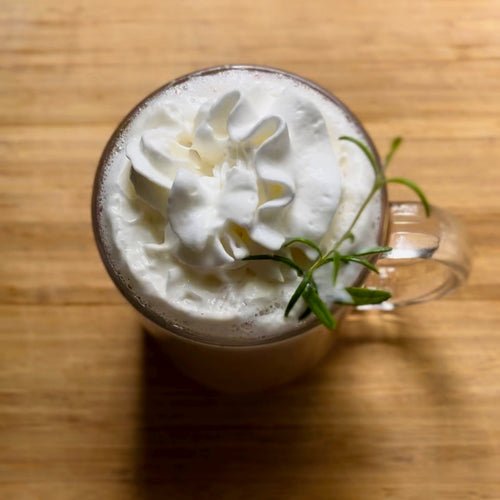What are Natural Flavors In Tea?
This term “natural flavors” shows up a lot on packaged products. In chips, cereal, snack bars, cold drinks…even in tea!
So what is a natural flavor? And is it bad for me??

A natural flavor is an extract from a natural source that enhances taste. The FDA requires that natural flavors are from a naturally occurring substance, but they don’t have to be from a specific food, or even a food at all. For instance, citrus natural flavors sometimes include caraway seeds; vanilla natural flavors sometimes use wood.
What’s the Difference Between Artificial Flavors and Natural Flavors?
While natural flavors are made from a natural substance, artificial flavors are synthetically made.
This sounds like a big distinction, but in many ways, natural flavors and artificial flavors are pretty similar. Natural flavors and artificial flavors are both processed in a lab by chemical transformations. They both have no nutritional benefit, but the FDA considers them both to be “generally recognized as safe.” Natural flavors have what’s called a “health halo” because they sound healthier than artificial flavors, but in reality there’s no significant difference.
Why are Natural Flavors Even in Tea?
Natural flavors are added to tea for variety of reasons:
- To add human-invented flavors: e.g. cappuccino, butterscotch, apple pie
- To deepen flavors of dry ingredients: eg. cinnamon, chocolate
- To increase water-solubility since pure oils don’t dissolve as easily in water
- To cut down on cost of more expensive ingredients: e.g. bergamot, vanilla
- To make up for poor/stale ingredients
- To extend shelf life with chemically stabilized flavors
So Are Natural Flavors Bad for You or Not? Should I Be Worried?
The FDA regulates natural flavors and considers them to be safe. Federal regulations offer a decent guideline for making health decisions. However you may want to further evaluate if you are more health-cautious for any reason, eg. because of food allergies, sensitivities, immune system dysfunction, etc.
Some points of concern when it comes to natural flavors:
Solvents
Natural flavors use carriers to make flavors water-soluble. It’s usually propylene glycol, a synthetic solvent with low toxicity that is used widely in food, cosmetics, vaping liquids, and industrial products such as antifreeze. It’s considered safe for humans in small quantities.
Polysorbate and Other Additives
Other additives that can be found in natural flavors include polysorbate 80, ethyl alcohol, benzyl alcohol, citric acid, food dyes, etc. Even if you don't have a severe allergy, some additives can trigger sensitivities, such as gastric distress, irritation, rashes, etc.
Allergies
If you have a severe allergy to certain food groups, they may be in natural flavors but may not be disclosed in the ingredients panel, especially if you have a less common allergen.
Underserved by Studies
Natural flavors are relatively under-researched as compared to artificial flavors and other additives such as food dyes.
Regulation Differences With Other Countries
The EU has more stringent regulations, oversight and transparency on natural flavors. They require that natural flavors use traditional food preparation processes, whereas the US broadly allows synthetic biology to chemically transform natural flavors.
There’s no clear-cut right or wrong answer here; every individual reacts differently to the things we consume, and everyone should make their own choice.
Where Can I Get Teas Without Natural Flavors?
If you are looking for teas are that will never contain natural flavors, Thistle & Sprig Tea Co. offers a line of limited-ingredient, clean botanical blends. We do this because:
1. We like ingredients transparency—for our customers and ourselves. On an ingredients panel, it will just list "natural flavor," so to see the full list of ingredients for that ingredient, you need to get it from the manufacturer. Then those ingredients usually include one or more chemical additives that need to be evaluated and researched (propylene glycol, polysorbate 80, etc).
2. We prefer the flavors of Nature over natural flavors. This is simply a *taste* thing and yes, that's a pun ;) but we believe tea should taste like the gorgeous herbs, spices, flowers and leaves that they are. We enjoy leaning into the fun, unique, inventive, and organic flavors that the immense world of tea has to offer.
So the only ingredients we use are whole plants, and single-ingredient oils pressed from plants. Some favorite flavors to check out include:
 |
Moonlit Mint - a refreshing peppermint with smooth chocolatey notes. Instead of chocolate flavoring, we use cacao husks sourced from a local chocolaterie, Xocolatl. |
 |
Georgia Grey - an earl-grey style tea using a cold-pressed bergamot oil, with rosemary for a savory twist. |
| Hazy Grey - another earl-grey style tea (yes, we have an problem) with a hazy citrus finish, from pure bergamot oil and pure orange oil. | |
| Turmeric Gingersnap - a lightly-spiced wellness herbal tea with turmeric, ginger and bright lemon notes. We use lemon balm and pure lemon oil for a citrusy punch. |
We offer ethically-sourced, gourmet teas in both loose leaf and pyramid-style tea bags. If you're curious about the tea bags we use, we've done a write-up on that, too.
Please note: the content provided is not health advice. Information accessed on this website are opinions and not statements of fact. Plants are potent and can have medicinal effects and impacts not stated herein. Consult with your doctor before making any changes, especially if you have a health condition, are pregnant, or are taking medication.
